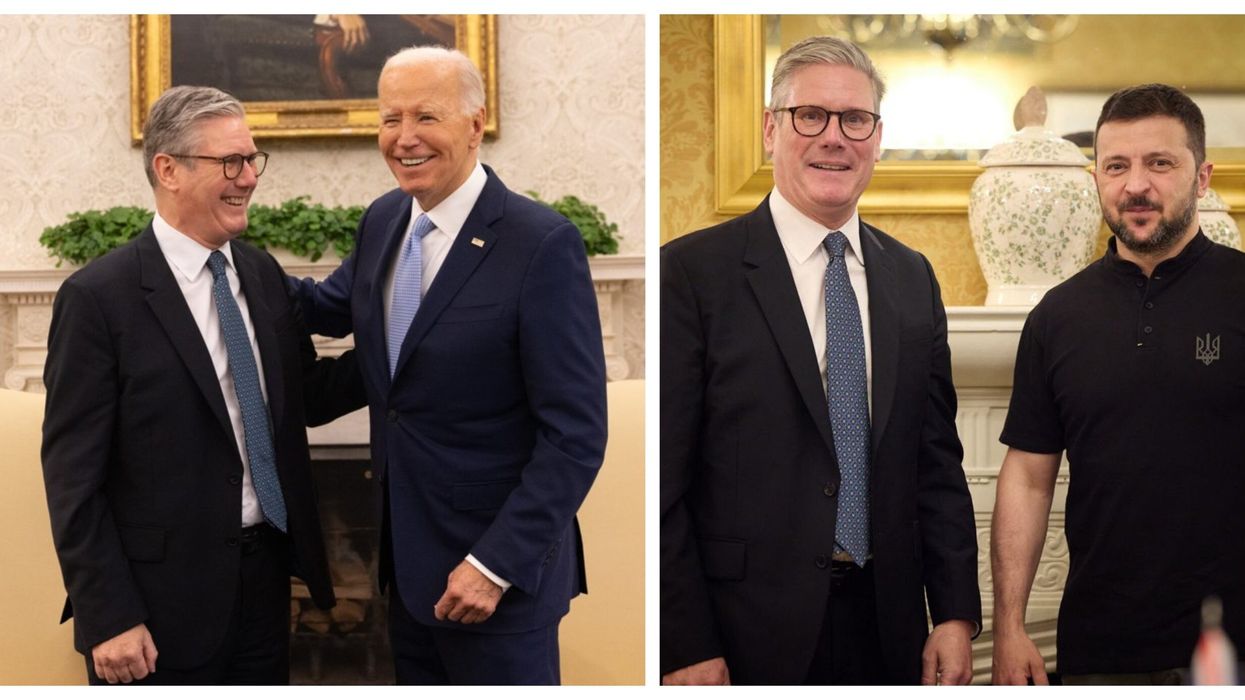Prime minister Keir Starmer met US President Joe Biden at the White House for the first time on Wednesday. The US leader described Britain as a key ally on global issues, including the war in Ukraine.
"We're the best of allies in the whole world," said Biden, 81, during their handshake in the Oval Office. He added that Britain serves as the "knot tying the transatlantic alliance together."
Starmer, 61, attending a NATO summit in Washington shortly after winning elections, emphasised the importance of the "special relationship" and said it is "stronger than ever now."
The two leaders joked about the English football team's semi-final win in the Euro 2024 championships, attributing the victory over the Netherlands to the prime minister.
Neither addressed Biden's re-election challenges following a poor debate performance against Donald Trump. Questions about Biden's health have also raised concerns among allies about a potential second term for Trump, who has questioned NATO's usefulness and considered a quick deal with Russia on Ukraine.
In Washington, Starmer pledged continued British support for Kyiv and approved strikes inside Russia with British missiles.
Days after his Labour Party won elections, ending 14 years of Conservative rule, Starmer reported a "very good" meeting with Ukrainian President Volodymyr Zelensky at the NATO summit's 75th anniversary.
"I made it absolutely clear that as far as the UK is concerned, the change of government makes no difference to the support that we will provide," Starmer told reporters.
On his flight to Washington, Starmer stated that British-supplied Storm Shadow missiles were for "defensive purposes," but Ukraine would decide how to use them, essentially allowing strikes inside Russia.
Starmer was scheduled to affirm Britain's support for Ukraine "for as long as it takes" in a speech to NATO leaders on Thursday. He was also expected to recommit to £3 billion annually in military support for Ukraine until 2030-31.
Britain will provide a new package of artillery and 90 Brimstone missiles and contribute to a significant NATO assistance package for Kyiv.
Under three Conservative prime ministers, Britain has been a strong supporter of Ukraine, advocating for advanced military systems and fewer restrictions on Kyiv.
Biden, who has supported Ukraine while avoiding direct conflict with Russia, recently allowed Ukraine to strike Russian positions near the border with US weapons.
Zelensky praised the decision on the Storm Shadow missiles, expressing gratitude on Telegram for the ongoing support of Ukraine and its people.
Kremlin spokesman Dmitry Peskov warned that Russia will take "appropriate measures" in response to Starmer's decision.
Starmer also met with other Western leaders at the NATO summit, including French President Emmanuel Macron. He expressed hope that the summit would send a clear message to Russian President Vladimir Putin about the alliance's unity and awareness of the threat of Russian aggression.
A NATO summit in Britain in 2014 set a goal of each ally contributing at least two per cent of GDP to defence, a long-standing US demand. Initially, only the United States, Britain, and Greece met this target, but the number has increased to 23 out of the 32 NATO members since the invasion of Ukraine.
Britain's new defence secretary, John Healey, suggested that NATO consider increasing the goal to 2.5 per cent, citing growing global threats. He told reporters that "all NATO nations are going to need to do more than simply two per cent."
(With inputs from AFP)





